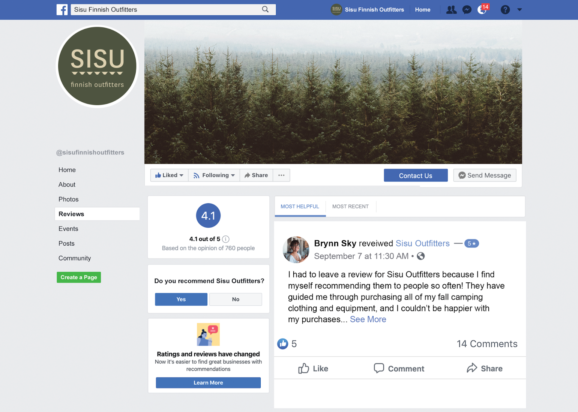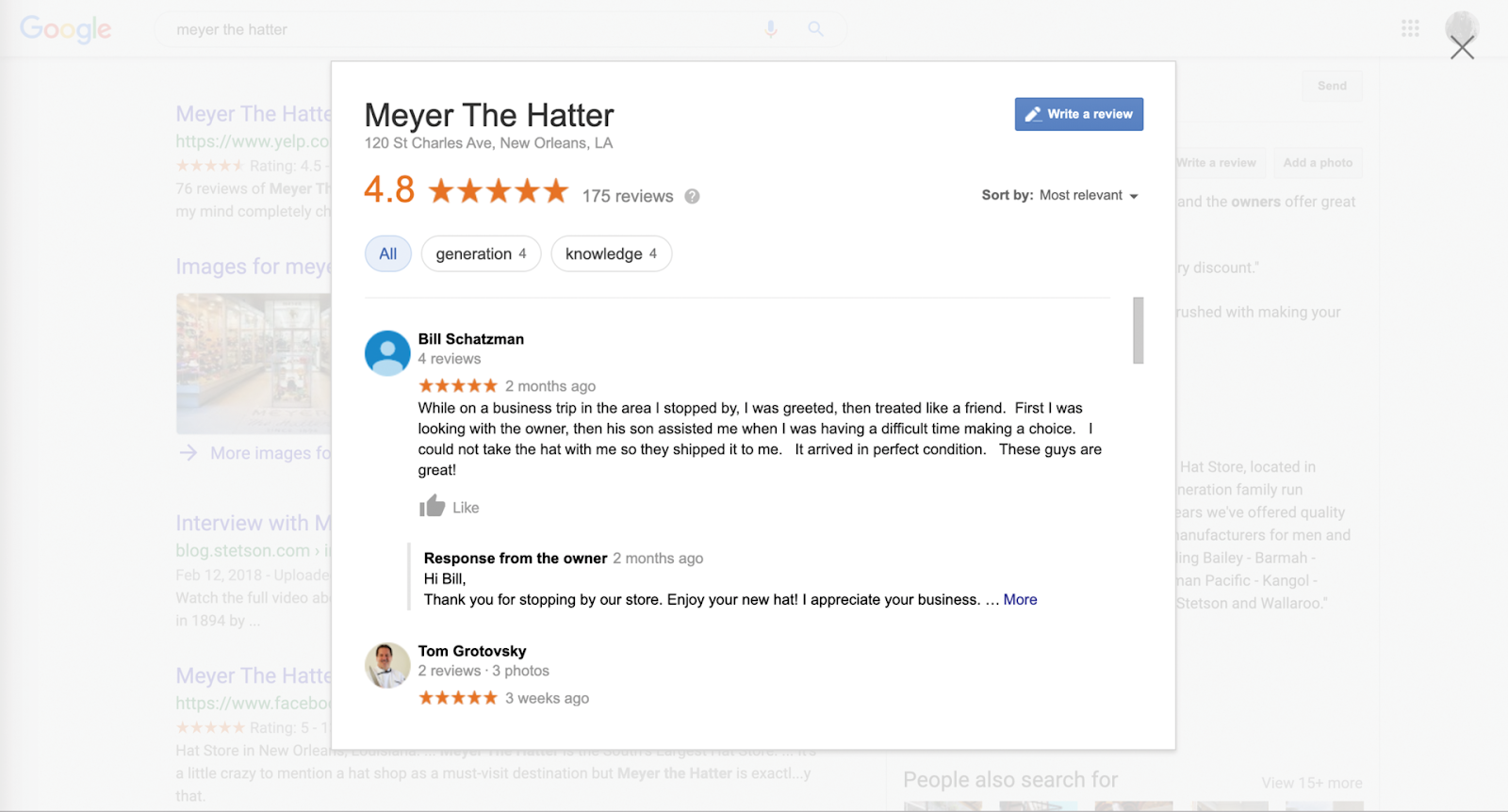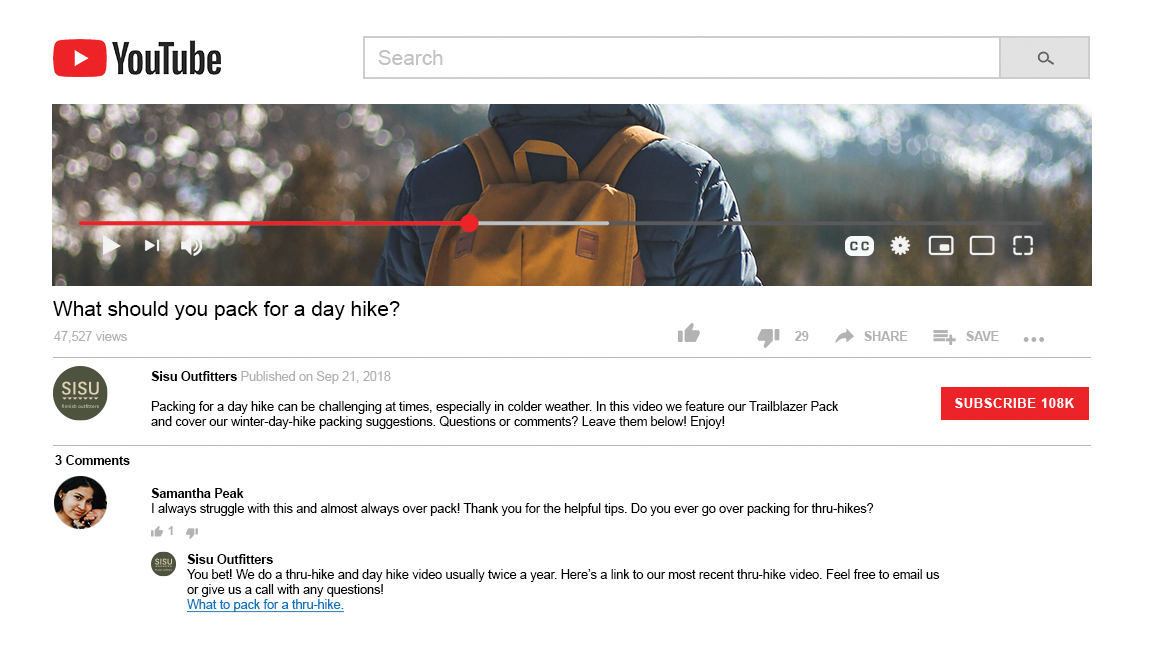
Being a small business owner in the current environment can be scary. Big corporations have big marketing budgets, brand recognition, and general power in the industry. The good news is that our research shows that people want to shop small. All you need to do is learn how your small business can compete with a large business.
Like most small businesses and startups, you may have a small marketing budget. It may seem infinitesimal compared with that of big businesses in your industry. You aren’t going to get a commercial during the Super Bowl, but you don’t need to go that big to play with the big kids.
Businesses are like cars in this sense. A huge truck makes up for what it lacks in speed with sheer power, but there are advantages to being small and agile. Larger businesses cannot optimize their marketing as quickly or as easily as small businesses can, and they use their large budgets to cover the holes.
Here are some ways small retail businesses can drift into the holes and compete with larger businesses.
Get all the tools you need to quickly find new customers and grow your retail store’s sales.
Experiment with your marketing strategy
Although larger businesses have entire teams to analyze their marketing strategies, changes can still take months or years to take effect. Small businesses can experiment with new marketing strategies every month if they want to.
This agility is an advantage to a small business over the power of a larger business. Small businesses can quickly design an ad, put it on Facebook, and do several rounds of A/B testing before a large corporation has even obtained approval to design a new ad.
Lock in your target demographic
Small businesses can really zone in on their marketing to target a single demographic with each ad. Larger businesses cannot do this because they need a massive number of sales to maintain their massive budgets. This makes the relationship with their audience tenuous.

When you market to a general audience, your words resonate lightly with many people. This causes some people to act, but for many, it’s not enough of a push to make a purchase. When you segment your marketing, your business can resonate strongly with people who need what you’re selling. This can lead to highly satisfied customers.
Give excellent customer service
Another advantage small businesses have over larger businesses is the ability to personalize the experience and give excellent customer service. Due to the sheer number of customers and employees, larger businesses cannot truly personalize the services that they offer. They can build policies that talk about personalization, but customers know when the employees are faking it.
Even if they receive a coupon on their birthday, it’s rare for staff at a large corporate store to know their customers by name or be able to hold a passionate conversation about the products.

Following up on a problem that you helped a customer solve last time you talked makes them feel good. People are designed to repeat patterns that make them feel good.
Act on customer feedback
Customer feedback is where small businesses can not only compete but also destroy larger businesses: While businesses of all sizes get customer feedback — whether they want it or not — a small business can actually act on it in a timely manner.
Larger businesses receive so much feedback that the customers can start to conflict with each other. As a small business, you can easily suss out the feedback that relates to your target audience, especially if you have already zoned in on it.
You have to get honest and thorough feedback, which can be harder than getting a star review, before you can use it.
Feedback can come in several forms. Some people leave voluntary feedback in reviews or by talking to a manager, but you can also create surveys or online polls, which will be from a more diverse group of customers. If you have a hard time getting responses, try offering a discount or prize entry to those who complete the survey.
Acting on feedback from customers improves your business by making it closer to what the customer envisions, as well as makes customers feel heard and feel valued. A customer who feels valued is a customer for life.
Hire the best employees
Small businesses can compete with larger businesses on the quality of their employees. By offering a living wage and benefits, a small business can attract employees passionate about where they’re working. Employees are the face of the business when you’re not there, so you want the very best, and you get what you pay for.
Employees knowledgeable about your business and matching your brand can help you give great customer service. When an employee is loyal, it can rub off on the buyer. If you have a high employee turnover, you should re-evaluate your company’s culture or compensation package.
Be an active part of the community
When you run a small business you, as an individual, are a big part of your brand. That is, when you participate in the community — whether that be online with virtual events or associations or in real life — you are getting positive exposure to your business and increasing your brand recognition. There are a lot of ways to give back.
Being an active part of your community is an opportunity to market your business, make valuable connections, and to improve the space that your business operates in. Volunteering or participating in the community is a win for you as an individual, for your business, and for your community.
Be an expert
A huge advantage that a small business can have when competing with larger businesses is that you — an expert on your business and industry — are there all the time. Larger businesses may have experts on their team, but those aren’t usually the people interacting with the customer and clients.
When a customer goes to a large corporation, like Amazon, they need to know the solution to their problem themselves. The customer has to do all the research. When they come to you, they can ask questions about their specific situation. Amazon will give them reviews and sometimes answer short questions in the Q&A area, but only a small business can provide advice on an expert level.

Establish a strong digital presence
For small businesses, when it comes to digital presence, you don’t need a dedicated social media manager. You can manage all your social media from one place. Here “managing” entails not only posting about new releases or promotions but also actually engaging with your audience.
Larger businesses have numerous followers but often have low engagement. Engagement is much more important for most social media algorithms. Authentic engagement is also a free, easy way to connect with your target audience.
There’s no need to be active on every social media platform, but go ahead and create a business account to “hold” your business name and identity so that no one else takes it and you have room to grow. Then, figure out which ones your audience uses the most and use that as your primary social media channel. And, while you’re there, connect with influencers with high engagement on the platform.
If you can’t beat them, join them
If a larger business’s services can benefit your small business, use them, even if you are competing with the business. For example, reach a wider audience by selling your products on Amazon, Walmart.com, or Etsy. The low shipping costs and familiar platforms can help convert buyers the first time.
Businesses that big don’t care if they are helping their smaller competitors or not, as long as their profits continue to grow. If it makes it easier for your customers to purchase your product, then don’t let pride get in the way.
The conclusion
There are more ways than ever before for small businesses to compete with larger businesses — only a few of which are covered here. For more ideas, reach out to your local small business development center or check out this article on marketing for small businesses.
The one thing that all of the strategies have in common is that small businesses can create a stronger and more authentic connection with their buyers. That’s something a Super Bowl ad can never compete with and what people want. Now is the time to get out there and build that relationship with your customers.




